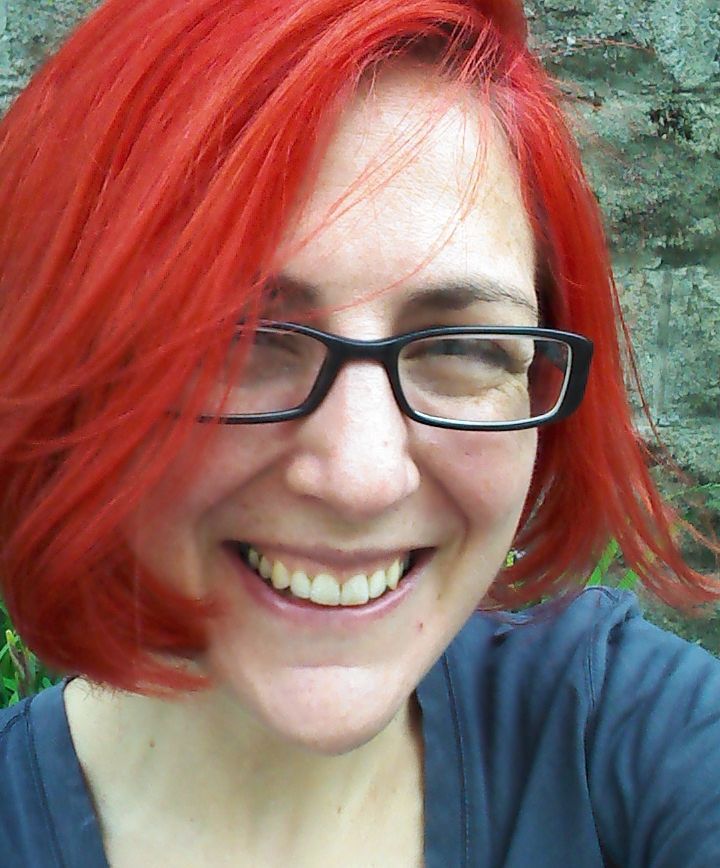Tanya Gold is a book editor, writing coach, translator and literary omnivore. She’s been in publishing about 20 years and has worked on all kinds of cool books. These days, she works on fiction, creative non-fiction and poetry. It has been suggested that she reads too much for her own good. This might be true.
Editors Canada is delighted that Tanya will contribute her expertise on several panels at our virtual conference, Editors Transform. Edmonton-based non-fiction editor Tracey Anderson interviewed Tanya about one aspect of her work: coaching writers. (This interview has been lightly edited.)
Tracey Anderson: You are a panelist on several panels at the Editors Canada virtual conference that runs June 12 and 13, 2021. The title of one of those panels is “Beyond Editing: A Conversation about Coaching Writers” with Genevieve Clovis and Sara Letourneau. How do you define writing coaching? How do you think it differs from teaching writing (or does it)?
Tanya Gold: It’s hard to come up with an answer for coaching and teaching in general, because coaches can have such different approaches. That’s why I asked two other coaches to join me for this panel. I’m really excited to discuss our different approaches.
For me, coaching is most often about figuring out what skills an author needs to develop to help them meet their goals, then finding ways to help them develop those skills. It’s like teaching specific writing skills and tailoring the instruction to a specific person.
Sometimes that looks like helping them find manuscript revision strategies that work for them. Sometimes that’s workshopping their writing to help them further develop their voice and style. Sometimes it’s giving them a system or a structure for a challenging process. And sometimes it’s helping them find structure in their ideas so they can be better prepared to write.
TA: The aim of coaching is to help writers grow and improve their craft. What do you think editors gain when they coach writers?
TG: Any kind of teaching gives us an opportunity to examine and re-examine the way we think, which is wonderfully exciting. In coaching writers, we get to re-examine our knowledge of writing craft and find a way to make it speak to a writer. That helps us not only deepen our knowledge of writing craft — which helps us grow as editors — it can also help us better understand our clients.
TA: The theme of the conference is Editors Transform. What relationship(s) do you see between transformation and coaching writers?
TG: One of the rewarding things for me in coaching (and in editing) is getting to witness authors further developing their skills. We are helping them grow, and by helping them grow, we have the opportunity to learn and grow too. It’s a beautiful synergy.
TA: Coaching is about sharing information and best practices. What is the best editing tip a colleague has ever shared with you?
TG: When I was complaining about a repetitive task many years ago, my partner, who is in bioinformatics, said something like “When I find myself repeating something, I automate it.” It was like a mindset shift for me. That got me started on creating templates for emails, common feedback and all sorts of things that I would write over and over. It also got me started on macros and other time-saving tools that require an initial time investment and have great payoff.
For coaching, this means when I guide a writer through something I haven’t encountered with other coaching clients, I develop a worksheet that I can use for them and for future clients. Now I’ve got a whole load of worksheets I can use when coaching authors, and I get excited when I can develop a new one.
TA: Some readers may know you from “StetWalk.” For those who don’t know, can you explain what StetWalk is and share its origin story?
TG: Absolutely! So many of us, especially us freelancers, are glued to our desks all day. I started #StetWalk to make myself get outside more often, to have a way of checking in with others and holding one another accountable. We take a walk and post a photo of something on that walk on Twitter or Instagram and use the #StetWalk hashtag to find one another.
Why don’t I introduce you to some of the community and tell you a little more about it? The #StetWalk Story [This video premiered at the ACES conference, April 22 – 23, 2021.]
TA: What has StetWalk meant to you since its beginning?
TG: For me, #StetWalk has always been about community, about supporting one another in our daily habits and sharing small parts of our worlds. It’s helped me develop bonds with other editors, writers and creative people all around the world while helping me stay motivated to maintain good habits.
___
Previous post from Tracey Anderson: “Editing has the power to elevate writing to a level where change is possible”: An Interview with Sheila Cameron
The Editors’ Weekly is the official blog of Editors Canada. Contact us.
Discover more from The Editors' Weekly
Subscribe to get the latest posts sent to your email.

